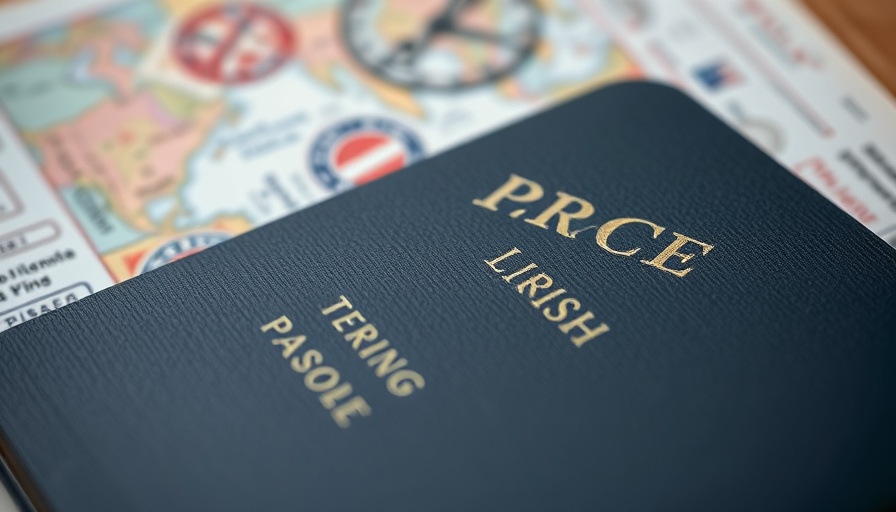
U.S. Travelers on Alert: What You Need to Know
In light of escalating tensions following recent military actions against Iran, the U.S. State Department has issued a worldwide caution for American travelers. This advisory highlights the increasing anti-American sentiment and potential threats on a global scale, urging citizens to remain vigilant while traveling abroad.
Understanding the Warning
The State Department’s warning comes as military conflicts intensify, particularly regarding the U.S. strikes in Iran. With reports of rising hostility, it's essential for Americans to recognize the risks associated with overseas travel during these tumultuous times. The advisory emphasizes the need for heightened awareness of one’s surroundings, particularly in regions known for unrest or where anti-U.S. sentiment is notably strong.
Historical Context: The Long Tension with Iran
The strained relationship between the U.S. and Iran has a long history, marked by political discord and conflict dating back decades. Recent actions from the U.S., including strikes aimed at Iranian interests, further complicate this relationship. This context is vital for American travelers to understand the current environment they may encounter, particularly in Middle Eastern countries.
Impact on Global Sentiment
The ripple effect of U.S. military actions often leads to backlash in various regions around the world. Iran, in particular, has mobilized support against perceived American aggressions, which can heighten tensions and foster hostility toward Americans abroad. Cultural sensitivity and a deep understanding of local sentiments are crucial for travelers.
Travel Safety Tips Amidst Global Tensions
For Americans planning to travel internationally, the following tips are critical to enhancing personal safety:
- Stay Informed: Keep abreast of local news and the political climate in your destination countries. International news outlets can offer useful context about potential threats.
- Avoid Large Gatherings: Steer clear of demonstrations or protests, particularly those that may have anti-U.S. sentiments.
- Register with the State Department: Utilize the Smart Traveler Enrollment Program (STEP) to receive alerts and help officials locate you in case of an emergency.
- Know Emergency Contacts: Familiarize yourself with local law enforcement and the nearest U.S. embassy or consulate in case of issues.
- Remain Vigilant: Trust your instincts; if a situation feels unsafe, leave immediately.
Counterarguments: A Different Perspective
While the State Department's advisory serves to protect Americans, some argue it may lead to unnecessary fear and deter travel unnecessarily. Critics of travel advisories suggest that heightened awareness of risks should be balanced with the benefits of cultural exchange and global engagement. It’s essential for travelers to weigh personal comfort against potential risks, making informed decisions based on comprehensive information.
What This Means for Future Travel
As international relations evolve, the impact on travel likely won't diminish soon; thus, travelers must remain alert and adaptable. Such advisories could become more frequent as geopolitical climates shift, leaving Americans to navigate uncertain waters when planning international trips. Learning about local contexts and preparing for potential backlash can lead to safer, more informed adventures abroad.
Conclusion: Your Safety is Your Responsibility
In conclusion, the State Department's worldwide caution serves as a stark reminder of the complexities and dangers associated with global travel during times of political instability. Travelers must take personal responsibility for their safety, stay informed, and adapt to changing circumstances. By being vigilant and proactive, Americans can continue to explore the world with greater awareness of the sociopolitical landscapes they enter. Don't let tensions deter your spirit of exploration; equip yourself with the knowledge needed to travel safely during challenging times.
 Add Element
Add Element  Add Row
Add Row 



Write A Comment